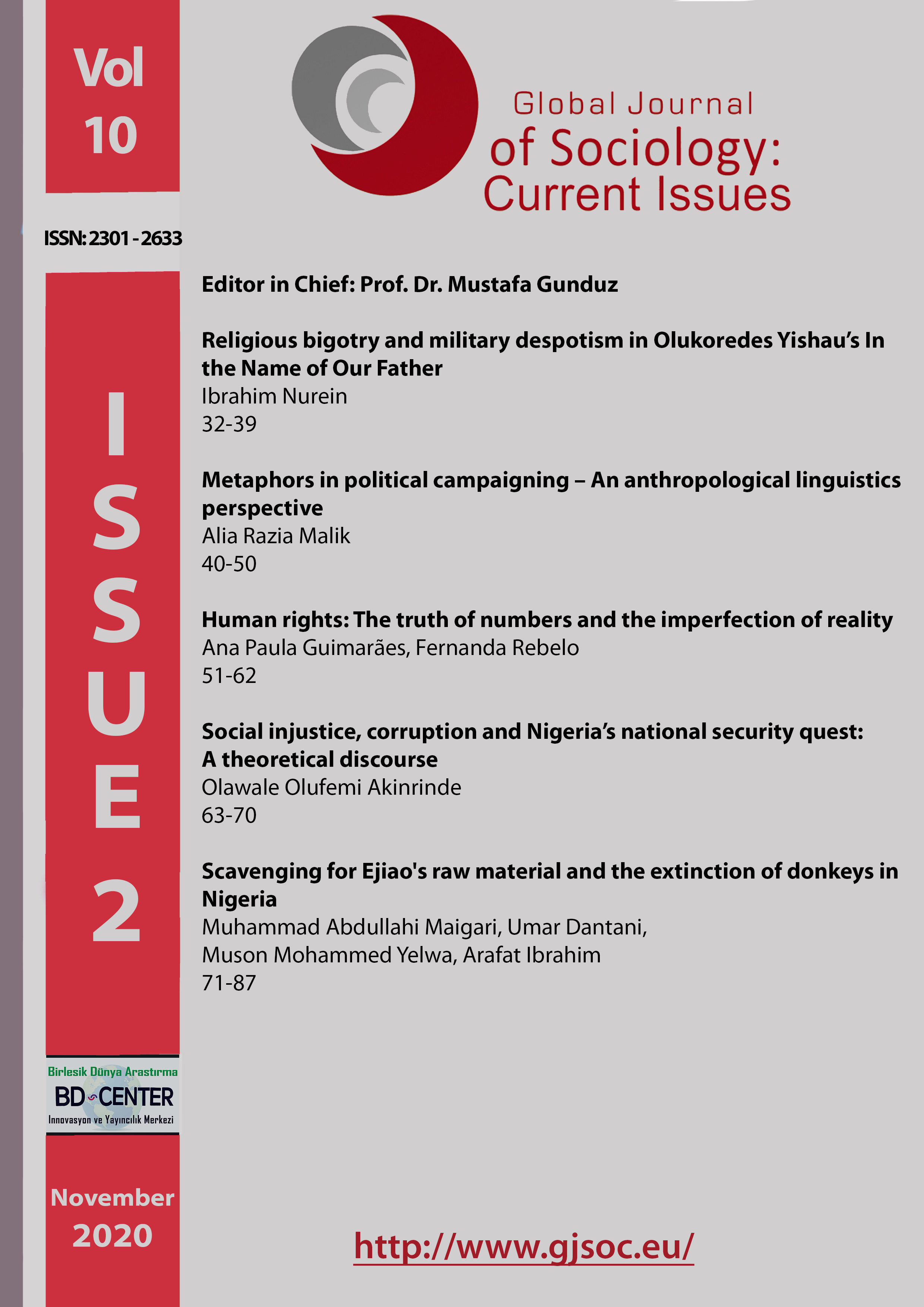Social injustice, corruption and Nigeria’s national security quest: A theoretical discourse
Main Article Content
Abstract
While across known histories of societies the human societies had always developed within the confines of their limits of social justice, the security or otherwise of societies had always been directly proportional to their level of social justice. Invariably, this implies the higher the acceptance and recognition of the need for social justice by a society, the higher the society’s chances for national security. Social justice has thus proven to be a critical sine qua non for an egalitarian and a just society where equity, selflessness and equitable distribution of resources reign. However, the lack and deliberate emasculation of social justice within the society by the state and/or its machineries has over time, consequentially, informed a pathological situation; a situation where, due to the absence or deliberate neglect of the need for social justice in the accumulation of wealth, distribution of wealth and resources as well as social, economic and political relationships amongst the people, the rich are becoming richer whilst the less privileged are becoming more disadvantaged. The social implication and effect of this social pathology is the impulse by the rich or the privileged to see and use corruption to accumulate more wealth, resources and power in unjust social, economic and political exchanges in their bid to maintain the unjust socio-economic and political systems, whilst the poor and the less privileged tend to see and use corruption as a leveller and means to accumulating their own share of the societal wealth, resources and power. The corrupt environment created by social injustice is therefore antithetical to any country’s quest for national security. This is chiefly because national security objectives and corruption are two parallel lines that cannot and have never met. This article therefore argues that social justice backed by egalitarian and equitable distribution of wealth, resources and social services by the government would bring about a corrupt-free society where insecurity would be minimised and reduced to the barest minimum.
Â
Keywords: Social injustice, corruption, insecurity, Nigeria’s National Security, Nigeria.
Â
Â
Downloads
Article Details

This work is licensed under a Creative Commons Attribution 4.0 International License.
Authors who publish with this journal agree to the following terms:- Authors retain copyright and grant the journal right of first publication with the work simultaneously licensed under a Creative Commons Attribution License that allows others to share the work with an acknowledgement of the work's authorship and initial publication in this journal.
- Authors are able to enter into separate, additional contractual arrangements for the non-exclusive distribution of the journal's published version of the work (e.g., post it to an institutional repository or publish it in a book), with an acknowledgement of its initial publication in this journal.
- Authors are permitted and encouraged to post their work online (e.g., in institutional repositories or on their website) prior to and during the submission process, as it can lead to productive exchanges, as well as earlier and greater citation of published work (See The Effect of Open Access).
